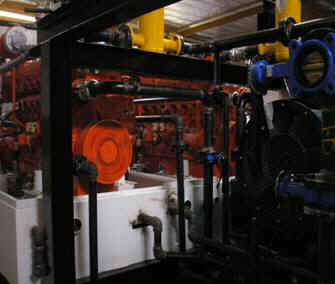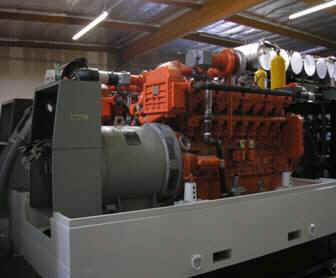|
info@BiofuelIndustries.com
|
|
info@BiofuelIndustries.com
|
Biofuel Industries
www.BiofuelIndustries.com
Biofuel
Industries Corp.,
a new Renewable Fuel and Waste to Fuel company
Introduction to Biofuel
Industries, a Renewable Fuel and Waste to Fuel Company - now being formed.
Biofuel Industries, a new renewable fuel and waste to fuel company is now being formed. Our company will produce renewable fuels, including fuel from waste. Biofuel Industries will solve a host of problems for our client companies located in the U.S. Our clients has a number of organic waste-stream problems along with associated liabilities and expenses.
Biofuel Industries will solve our client's organic waste-streams by upgrading the waste-streams into practically-free fuel in our Waste to Fuel (WTF) plants. Our WTF facilities will generate practically free biomethane or synthesis gas, as well as B100 Biodiesel.
Our Renewable Fuel and/or Waste to Fuel facilities are comprised of the following assets;
One or more Anaerobic Digesters
Biomass Gasification plant
Transesterification / Biodiesel plant
EcoGeneration power plant(s)
that will be located at our client companies properties.
The
renewable fuel we produce from our client's waste-streams include; biomethane, synthesis gas
or B100 biodiesel which will be the fuel that runs our onsite EcoGeneration power plants.
As the Biomethane, B100 Biodiesel or Synthesis Gas we generate in our Renewable
Fuel and Waste to Fuel facilities will be practically free
fuel - or in the case of B100 Biodiesel, produced at LESS than $1.00/gallon, this represents a significant competitive advantage for our
company. Our low-cost renewable fuel that runs our EcoGeneration (cogeneration or trigeneration)
power plants will have nearly zero emissions, and recognized as "clean power generation" plants.
And, as biomethane and synthesis gas is being recycled by our WTF facility, our
EcoGeneration power plants will also be recognized for generating "carbon free
energy," which is yet another competitive advantage that cannot be easily
replicated by our competitors, including the client company's electric utility
company.
|
|
![]()
Clean Power Generation Solutions
CHP
Systems (Cogeneration
and Trigeneration)
Plants
Have Very High Efficiencies, Low Fuel Costs & Low Emissions
The CHP System
below is Rated at 900 kW and Features:
(2) Natural Gas Engines @ 450 kW each on one Skid with Optional
Selective Catalytic Reduction system that removes Nitrogen
Oxides to "non-detect."
The Effective Heat Rate of the CHP System
below is
4100 btu/kW with a Net System Efficiency of 92%.



Our CHP Systems
may be the best solution for your company's economic and environmental
sustainability as we "upgrade" natural gas to clean power with our clean
power generation solutions.
Our Emissions
Abatement solutions reduce Nitrogen
Oxides to "non-detect" which means our
CHP Systems
can be installed and
operated in most EPA non-attainment regions!
What is Biofuel?
Biofuel is a renewable form of fuel that can be used as a solid fuel, liquid fuel or gaseous fuel. Biofuels include;
B100
Biodiesel
Biogas
Biomethane
E100 Ethanol
Synthesis Gas (Syngas)
Biofuel,
like non-renewable fossil fuels, are made from non-living biological matter. This is how
biofuel is different from fossil fuel, since fossil fuels are composed of
long-dead organic matter that over time, heat and pressure, was converted to
coal, oil or natural gas.
The organic matter that makes up biofuel can be obtained from a very large group
of organic materials including any plant material or animal waste
including; animal fat, corn, corn stover, manure, sewage sludge, vegetable
oil, or various other photosynthetic plants.
E100 Ethanol can be produced from sugar cane, sugar beets or corn.
B100 Biodiesel can be produced from practically any vegetable oil or animal fat.
Biogas - which needs to be cleaned up to biomethane before it can be used - can be produced from animal manure or other organic sources, which is converted to biogas by placing the organic materials into "anaerobic digesters."
Synthesis Gas can be produced from recently dead organic matter that is processed through "biomass gasification." Biomass includes wood and other plant and animal matter.
All
Biofuels are considered to be "renewable" resources because the
biomass is composed of organic matter that can be replenished by simply planting
and growing a new crop.
Increased use of Biofuels have a number of advantages over traditional fossil
fuels
A reduced dependence on non-renewable fossil fuels for an energy source.
By utilizing different photosynthetic plants that can be replenished, the dependence on oil, gas and petroleum can be decreased. As we progress into a future with rising gas prices and a lessening of fossil fuel resources this is an important step that must be taken.
Increased use of Biofuels reduces Greenhouse Gas Emissions
While there are some naturally occurring greenhouse gases, such as biogas, the majority of the climate's greenhouse gas emissions are caused by human activities.
The primary greenhouse gas emissions include;
Carbon Dioxide
(CO2)
Methane (CH4)
Nitrous Oxide (N2O)
CFC and other fluorinated gases
These four gasses are a result of different methods of burning fossil fuel; whether it be in vehicles or factories. By burning biofuels there will be less greenhouse gas emissions because when burned (either in a car or in a factory) biofuels burn cleaner. Another benefit to biofuels is the fact that they are biodegradable whereas fossil fuels are not.
Increased use of Biofuels creates new jobs
With biofuel refineries on the rise, there will be millions of jobs created in these areas. Biofuel production will also be helpful to farmers who can grow the necessary crops.
Increased use of Biofuels reduces all forms of pollution
Greenhouse
gas emissions increase and worsen air pollution worldwide. By reducing the amounts of fossil fuel burned, air pollution will also be reduced.
Increased use of Biofuels reduces America's dependence on foreign oil
Unlike other renewable energy sources, biomass can be converted directly into liquid biofuels to help meet transportation fuel needs.
The two most common types of biofuels in use today are ethanol and biodiesel
while the fastest growing biofuel type of biofuel now, is now biomethane.
Ethanol is an alcohol, the same as in beer and wine (although ethanol used as a fuel is modified to make it undrinkable). It is most commonly made by fermenting any biomass high in carbohydrates through a process similar to beer brewing.
Ethanol is made from starches and sugars, but NREL scientists are developing technology to allow it to be made from cellulose and hemicellulose, the fibrous material that makes up the bulk of most plant matter.
E100
Ethanol can also be produced by a process called biomass gasification.
Biomass gasification plants use high temperatures and a low-oxygen environment to convert biomass into synthesis gas,
which is a mixture of hydrogen (H2) and carbon monoxide (CO). The synthesis gas, or "syngas," can then be chemically converted into ethanol and other
fuels but also used just like natural gas in its gaseous form.
E100
Ethanol is mostly used as blending agent with gasoline to increase octane and cut down carbon monoxide and other smog-causing emissions. Some vehicles, called Flexible Fuel Vehicles, are designed to run on
E85 Ethanol, which is an alternative fuel with much higher ethanol content than regular gasoline.
B100
Biodiesel is made by combining alcohol (usually methanol) with vegetable oil, animal fat, or recycled
vegetable oil. Biodiesel can also be used as an additive in various
amounts, with B20 Biodiesel (20% biodiesel and 80% "dirty" diesel)
being a popular and widely-used blend - which reduces car and truck emissions.
Research into the production of liquid transportation fuels from microscopic algae, or microalgae, is reemerging at NREL. These microorganisms use the sun's energy to combine carbon dioxide with water to create biomass more efficiently and rapidly than terrestrial plants. Oil-rich micro-algae strains such as chlorella vulgaris, are capable of producing the feedstock for a number of transportation fuelsóbiodiesel, "green" diesel and gasoline, as well as jet fuel (kerosene) ó while greatly reducing the effects of carbon dioxide released from sources such as power plants that convert the power plants to run on these biofuels.
What is Renewable Natural Gas?
Renewable Natural Gas is methane or CH4, from renewable energy sources. Renewable Natural Gas is typically referred to as "Biomethane."
Biomethane can be used in the exact same method or manner as "natural gas" from fossil fuel sources.
What
is Biomethane?
Biomethane is the "renewable natural gas" made from organic sources - which starts out as "biogas" but then is cleaned up in a process called "Biogas to Biomethane" which removes the impurities in biogas such as carbon dioxide, siloxanes and hydrogen sulfides (H2S).
Biomethane is soon to be re-classified from the category of "Low Carbon Fuels" to "Super Low Carbon Fuel" due to it being the greenest of all biofuels!
"Cleaned-up"
and ready for use in an onsite cogeneration
or trigeneration power plant, the Biomethane
could also be sold to
a pipeline company and completely replace the "natural gas" that is
typically transported to markets via the vast underground pipeline system.
Biomethane
will some day replace
the "methane" that is sold by natural gas utility companies.
Biomethane has an unlimited supply, whereas the methane sold by gas companies has a limited supply. Biomethane is renewable, whereas the methane sold by your gas utility company is not renewable. Biomethane and biogas recovery, use and production generates "Greentags" or a "Renewable Energy Credit" for the owners and is GOOD for our environment.
As previously mentioned, Biomethane is "naturally" produced from organic materials as they decay. Sources of Biomethane include; landfills, POTW's/Wastewaster Treatment Systems, and every tree or agricultural product that is no longer living. Biomethane is also generated from animal operations where manure can be collected and the Biomethane is generated from anaerobic digesters where the manure decomposes.
Biomethane, after installation of the Biomethane equipment is essentially free, as opposed to buying natural gas, presently costing around $10.00/mmbtu.
Methanogenesis is the production of CH4 and CO2 by biological processes that are carried out by methanogens.
Unlike the price of natural gas, which has been very unstable, and wildly fluctuating from $5.50 to as much as $17.00/mmbtu this past year, Biomethane prices will tend to be more stable over the years. As more and more Biomethane is produced, and produced in reliable and sustainable methods that can fuel our energy needs now and for.
Biofuel
Industries, will be the leading
provider of Renewable Biofuels, utilizing our customer's
"free"
organic waste streams and through our "waste
to fuel" technologies, including;
We will generate the following renewable fuels;
E100
Ethanol
(from Biomass, not from corn)
And using the
above renewable fuels, generate "carbon
free energy" and "pollution
free power"
through our EcoGeneration
(Clean
Power Generation)
power plants;
www.RenewableEnergyInstitute.org
Email:
info(@)Renewable Energy Institute (.)org
The information contained on this site is
copyright protected and 
![]()
cannot be
reproduced in any form or manner without our consent.
Biofuel Industries
www.BiofuelIndustries.com
Biofuel
Industries Corp.,
a new Waste to Fuel company
![]()
Copyright
© 2005
All Rights Reserved